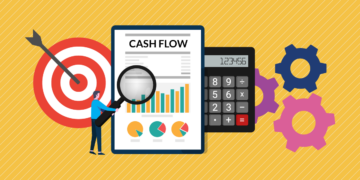
Steps to Change Your Bank
To change banks, first evaluate your financial needs and research potential new banks. Compare fees, services, and customer support. Open a new account that fits your requirements, transfer your finances, and update any related financial information. Finally, close your old account after ensuring all transactions have cleared.
Preparing for an Economic Downturn
In recent times, the term “recession” has become increasingly prominent in conversations. Numerous financial experts have raised concerns about the looming threat of a recession, casting a shadow of doubt over the economic prospects of many. This article will take a novel approach to recession preparation, moving beyond the standard financial advice often repeated. We […]

Assessing Financial Advisors: Selection Criteria and Associated Costs
When choosing a financial advisor, it's crucial to consider their qualifications, experience, and investment philosophy. Understand and negotiate fees, which may include management, transaction, and custodial costs. Remember, selecting an advisor is as much about trust as it is about cost.

Strategies for Early Retirement
Explore innovative strategies to attain early retirement, going beyond simple cost-cutting. Consider avenues like entrepreneurship, generating passive income, skill utilization, remote employment, and further education. Wisely handle your finances and ready yourself for the psychological shifts involved.

The Comprehensive Handbook on Financial Management
Financial management is a subject we’re all familiar with, often revisited through parental guidance and a plethora of online content. The prevailing wisdom encourages us to save, invest, and steer clear of debt to secure financial success. Yet, this piece seeks to transcend typical advice and probe deeper into the nuances of managing money. We […]

Strategies for Planning Retirement
Investigate alternative retirement approaches like early retirement, semi-retirement, and retiring abroad. Highlight the importance of astute financial planning, establishing clear goals, diversifying investments, generating passive income, and remaining flexible to ensure a rewarding retirement experience.

When Is the Right Time to Begin Investing?
The best time to start investing is as early as possible to maximize the benefits of compound interest. However, before investing, prioritize clearing high-interest debts. The ideal investment timing varies by individual, depending on life stage, financial goals, and risk tolerance. Consulting a financial advisor is advisable.

How much money is needed to retire?
Discover the essentials for a satisfying retirement by grasping the factors that influence your financial requirements. Delve into tailored approaches and professional guidance to meet your retirement aspirations. Strategize carefully to ensure a rewarding life after your career.